Morocco
Morocco is battling to save its monkey economy as the species continue to suffer attacks.
Harrad, like most Moroccans, spend their time crisscrossing the northern parts of the country to convince locals to protect the endangered monkeys.
The International Union for Conservation of Nature (IUCN) has blamed illegal poaching, tourists who feed the monkeys and overexploitation of the cedar and oak forests that form the species’ natural habitat for the attacks, which has seen most leave to other places.
“If nothing is done, this species will disappear within 10 years,” Ahmed Harrad, head of a local association, Barbary Macaque Awareness & Conservation, BMAC’s four wheel drive said.
“We are working on two areas – monitoring and making a census of the species in the Rif and raising awareness among locals so that they actively help rescue it,” Harrad said.
Harrad has become a tireless advocate for the monkeys, whom he says are sold to buyers in Europe for between $110 and $330 (100 and 300 euros) despite laws forbidding the trade.
“The Barbary macaque is the only species that exists north of the Sahara, and is found only in Morocco, Algeria and a little in Gibraltar, making Morocco the most important country in terms of conservation of this species,” he added.
According to the National Geographic, skeletal remains have been discovered “in the ashes of Pompeii, deep within an ancient Egyptian catacomb, and buried beneath an Irish hilltop where the Bronze Age kings of Ulster once held court”.
Morocco has never conducted a nationwide census of the macaque, but scientists believe its numbers fall every year.
It is estimated that Morocco is home to between 3,000 and 10,000 monkeys. Three decades ago, it stood at 17,000.
Authorities say they are committed to the fight to restore sanity, with awareness-raising sessions being organized for tourists and schools.




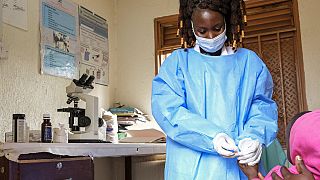
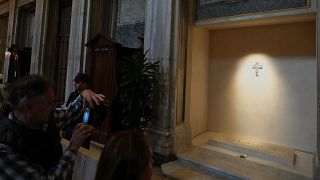


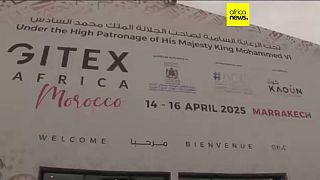
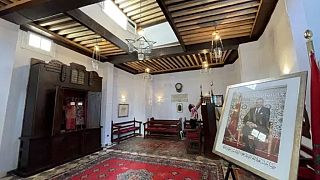
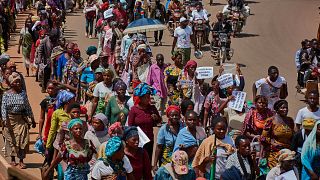
01:16
Africa mourns Pope Francis, a voice for peace and justice
01:14
ECOWAS Meets in Ghana to Tackle Member Withdrawals
Go to video
Exhibition in Morocco explores a world of color
Go to video
The EU moves to fast-track asylum claims by migrants from 7 countries to speed deportation
Go to video
EU foreign ministers discuss Ukraine, Syria and EU-African relations in Luxembourg.
00:50
Spain: human trafficking ring smuggling moroccans into europe dismantled